At last, the delayed but much anticipated 2020 Paralympics are fast approaching.
The Tokyo 2020 Games are likely to go down in history as the ‘Resilience Games’. The whole world has been through unprecedented disruption – not the ideal backdrop for preparing to host an enormous, global sporting spectacle.
If the athletes in the Games display as much courage and determination (and they will) as the host city has in getting these Games together, we should be looking at a classic.
In a sense, the world has recently experienced those same feelings of exasperation and anxiety that many disabled people deal with daily. The whole point of the Paralympics movement, started in Stoke Mandeville all those years ago, was to show that people can learn to live differently through adopting a bold attitude of perseverance.
The Paralympic Games are a celebration of what the human spirit can achieve!
Paralympics – by numbers…
Here’s what to expect from the greatest show on earth.
540
Number of events over the 22 summer Paralympic sports sanctioned by the International Paralympic Committee (IPC).
4,400
Number of athletes expected to compete, from a record 170 countries, including from new member countries, Uruguay, Kiribati and Maldives.
68,000
Capacity of the Tokyo Olympic Stadium that will host the opening and closing ceremonies.
4.1 billion
Number of people that watched the Rio 2016 Paralympics. With more broadcasters than ever before covering the Games, Tokyo 2020 is expected to surpass that number.
And…
147
Total medals won by ParalympicsGB at Rio 2016. This included 64 golds helping them to finish second in the overall medal table. Could we go one place better?
The ones to watch
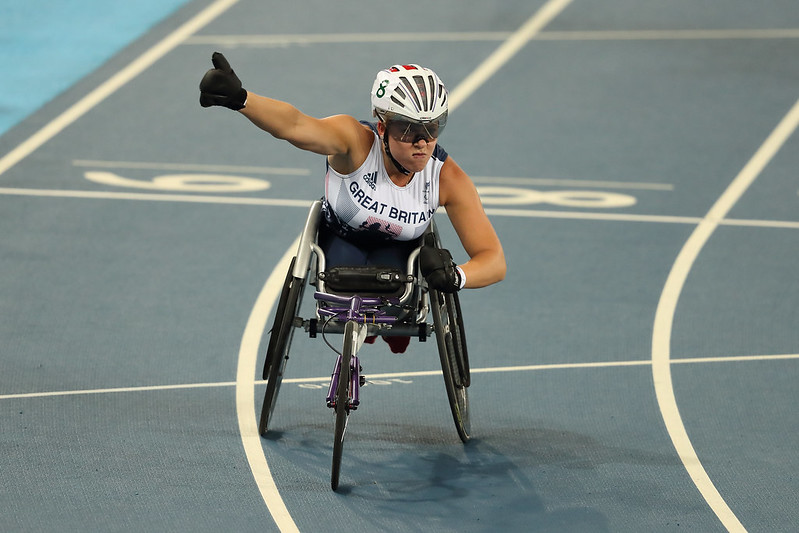
Hannah Cockroft
‘Hurricane Hannah’ has been blowing the opposition away since the IPC World Championships in 2011. Since then, she’s won five Paralympic titles in various distances in the T34 classification.
It’s strange to think that things could have turned out very differently for Cockroft since as a young person, she competed in swimming, seated discus and wheelchair basketball before attending a British Paralympic talent day where she sat in a racing chair for the first time.
Incredibly, Cockroft lowered her own world records in the women’s T34 100m, 200m, 400m and 800m in May this year.
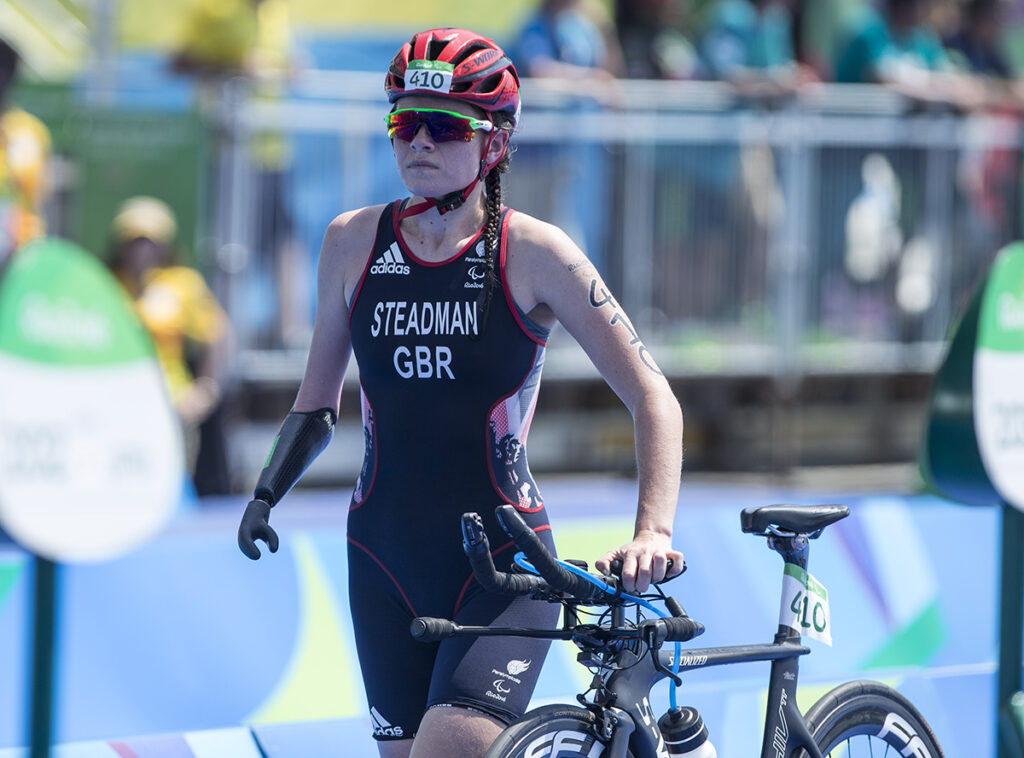
Lauren Steadman
Current World and European Champion, Steadman competed at two Paralympic Games as a swimmer, competing at Beijing in 2008 at the age of 15. It was after encouragement from her uncle that she discovered paratriathlon. She entered her first event, the British Championships, in Nottingham in 2011 and finished second.
Paratriathlon made its debut as a Paralympic event in Rio 2016, where Steadman won a silver medal.
Steadman seems able to give anything a try and succeeded in reaching the semi-finals of the BBC TV show, Strictly Come Dancing in 2018. She also got to the final of the Channel 4 programme, SAS Who Dares Wins Celebrities in 2020.
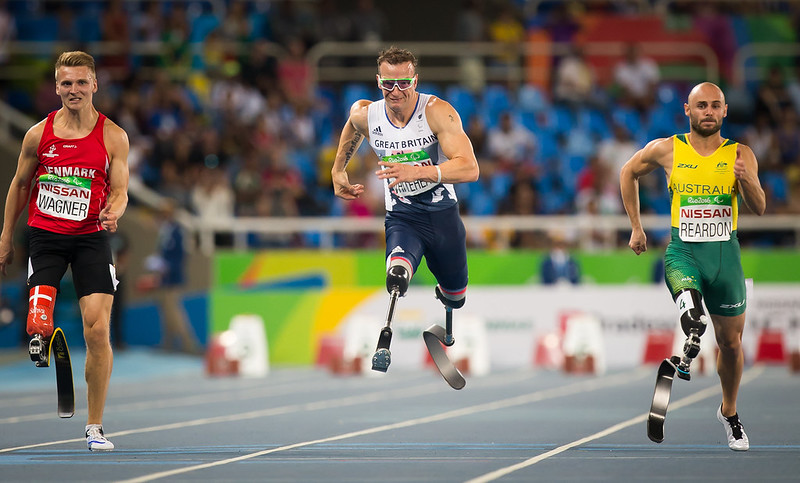
Richard Whitehead
Whitehead is one of the best all-round athletes in the country. Throughout his career he’s been able to swap between the Marathon and sprint events, having set several world records in both.
In fact, Whitehead has also competed in swimming and was part of the Great Britain para ice hockey team at the 2006 Paralympic Winter Games in Turin and has also played para cricket for England.
Tokyo 2020 will be his third summer Games, having claimed gold at London 2012 and Rio 2016. He’ll be racing in the T61 200m.
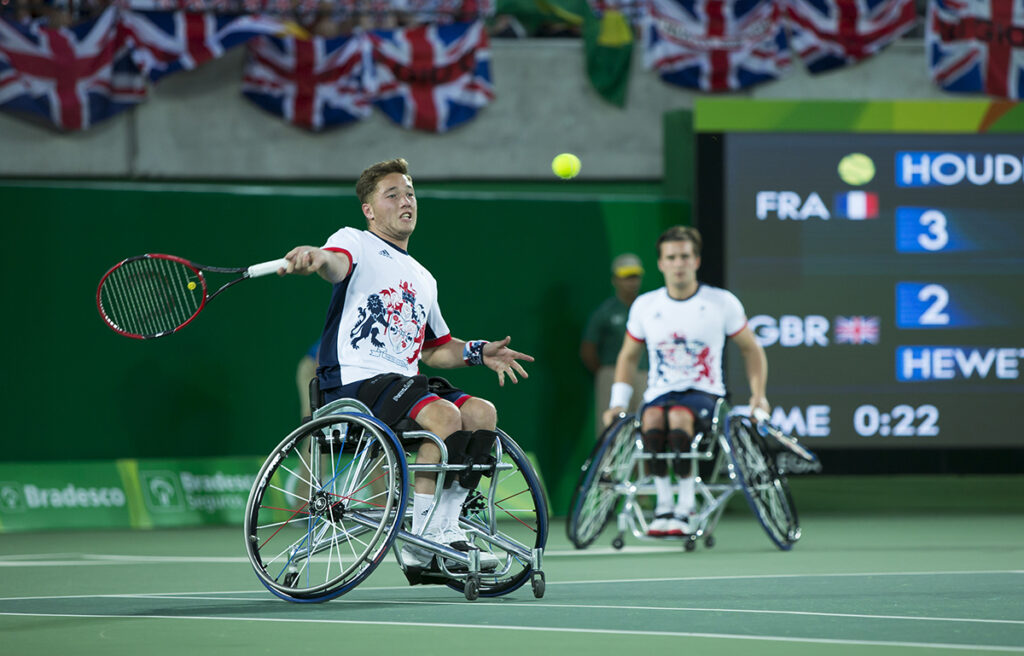
Alfie Hewett
Wheelchair tennis player, Hewett, made a spectacular Paralympic debut at Rio 2016, reaching the first ever all-British men’s singles final and finishing as silver medallist behind Gordon Reid. He also partnered Reid to win the men’s doubles silver medal.
Hewett became the youngest winner of the sport’s Singles Masters title in 2017 aged 19 before also becoming the youngest ever men’s singles world number one in January 2018, aged 20. Alfie is a five-time Grand Slam singles champion and 11-time Grand Slam doubles champion, partnering Reid.
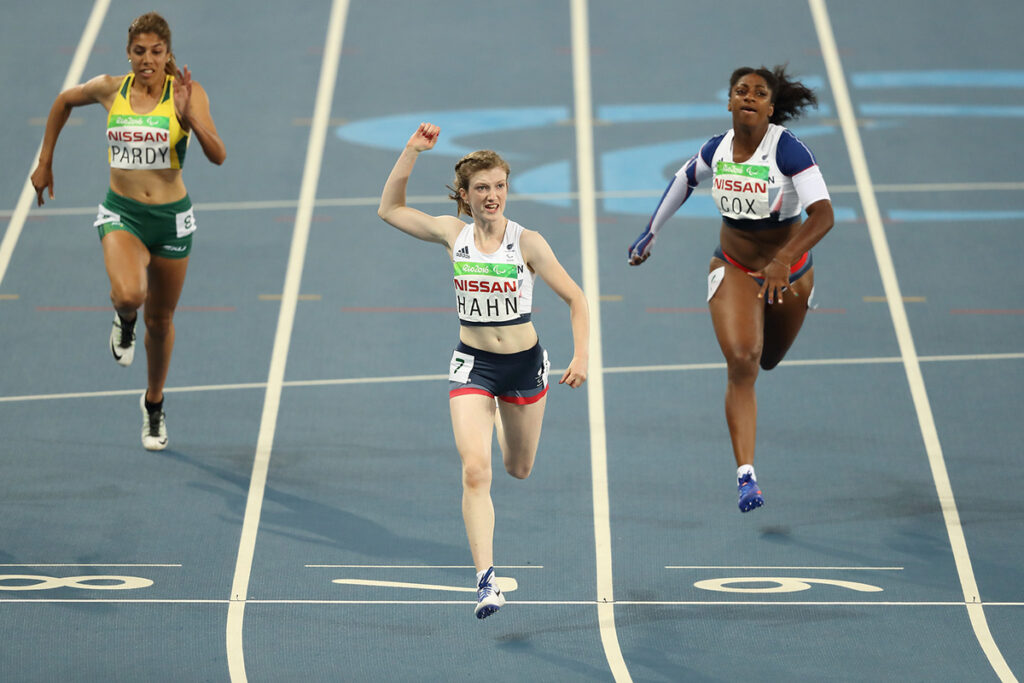
Sophie Hahn
Anyone looking for impact or legacy from London 2012 should consider Sophie Hahn. Less than a year after watching the Games, Hahn won gold at her first major international competition in the T38 100m with a new world record time at the 2013 World Championships. She also won T38 200m silver.
Hahn’s Paralympic debut came in Rio in 2016 where she broke the Paralympic record twice on her way to the T38 100m title.
Together with Kadeena Cox, Maria Lyle and Georgina Hermitage, Hahn also won silver with a European record in the T35-38 4x100m confirming her importance as part of a new golden generation of British parasport stars.
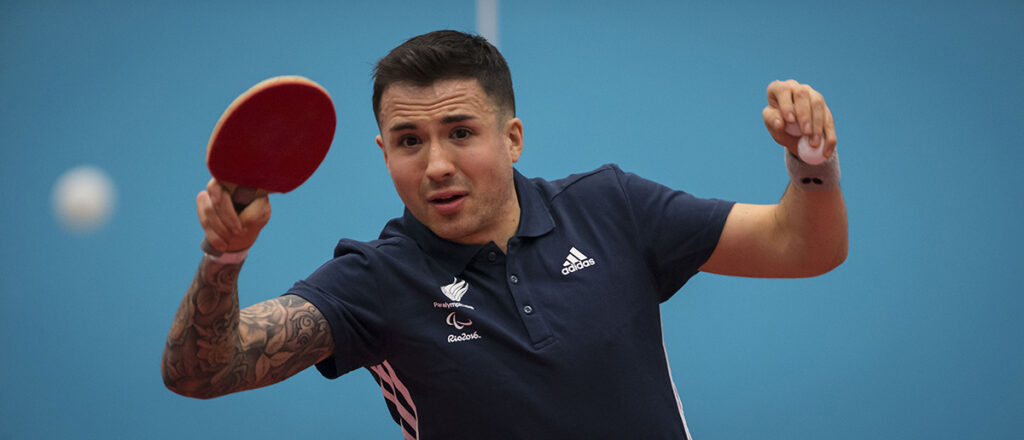
Will Bayley
The seeds of Bayley’s success in sport stretch back to his childhood health challenges. Bayley was born with arthrogryposis, a condition that affects limb mobility and had 12 operations to reshape his feet.
Aged seven he was also diagnosed with non-Hodgkin lymphoma for which he endured chemotherapy and during which time his grandmother bought him a table tennis set to get him active again.
Bayley won individual silver at London 2012 as well as a team bronze. In Rio in 2016 he wentone better, winning gold in the men’s class 7 event.
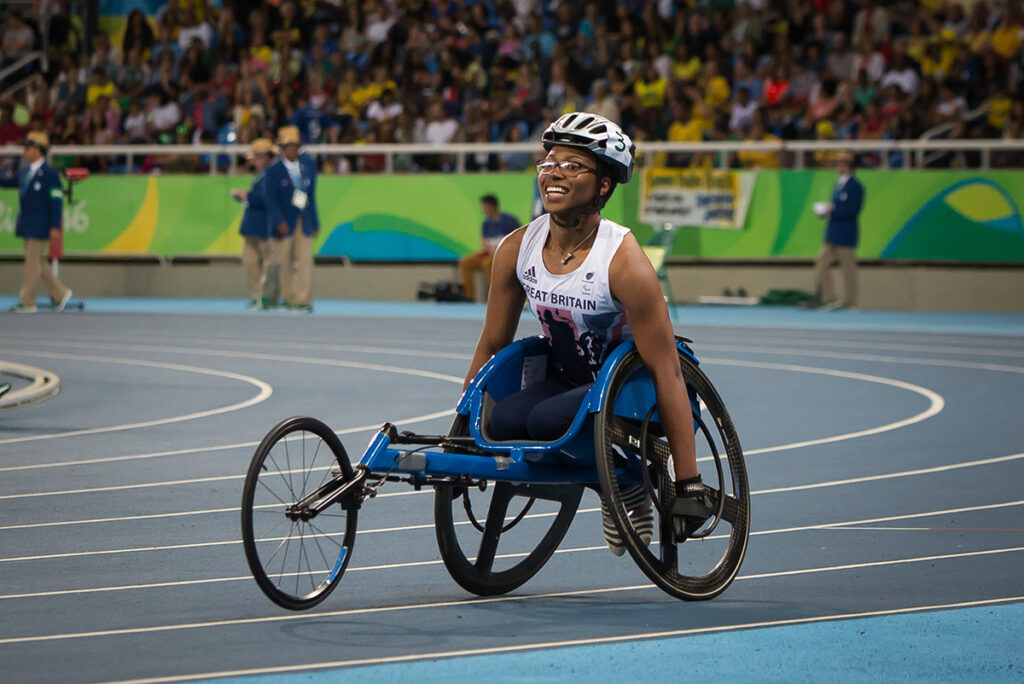
Kare Adenegan
Adenegan was the youngest member of the ParalympicsGB track and field squad for the Rio 2016 Games.
She came home from Rio with three medals, a silver in the T34 100m and two bronze medals for T34 400m and 800m respectively.
Adenegan set an impressive new world record in the T34 100m at the 2018 Anniversary Games. At the time Adenegan was still only 17 years old and upset the odds by beating Paralympic Champion, Hannah Cockcroft in a time of 16.80. Their continued rivalry will be both fascinating and exhilarating.
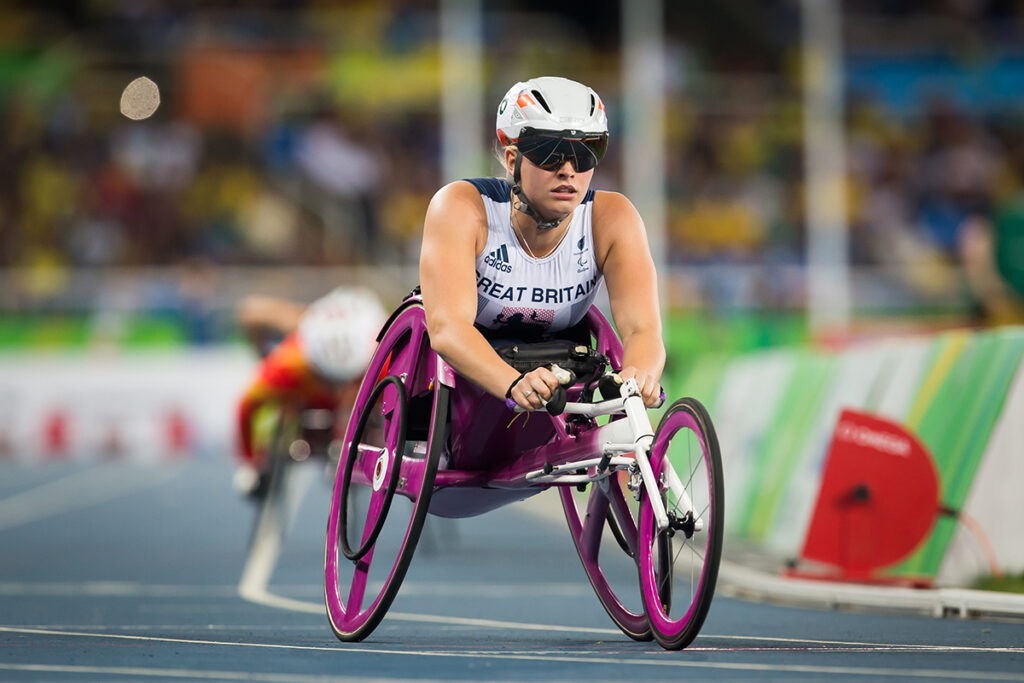
Samantha Kinghorn
Kinghorn’s Paralympic debut was at Rio 2016 where she made it to three finals in the T53 classification, 100m, 400m and 800m but did not medal.
In 2017, Kinghorn became double World Champion in the T53 100m and 200m at the London World Championships and is also the current World record holder over 200m and European record holder over 100m, 400m and 800m.
At the Gold Coast Commonwealth Games in 2018, Kinghorn took on the marathon and 1500m and was placed fourth in both races. More recently, in 2019, she won bronze in the 100m at the World Para-Athletics Championships.
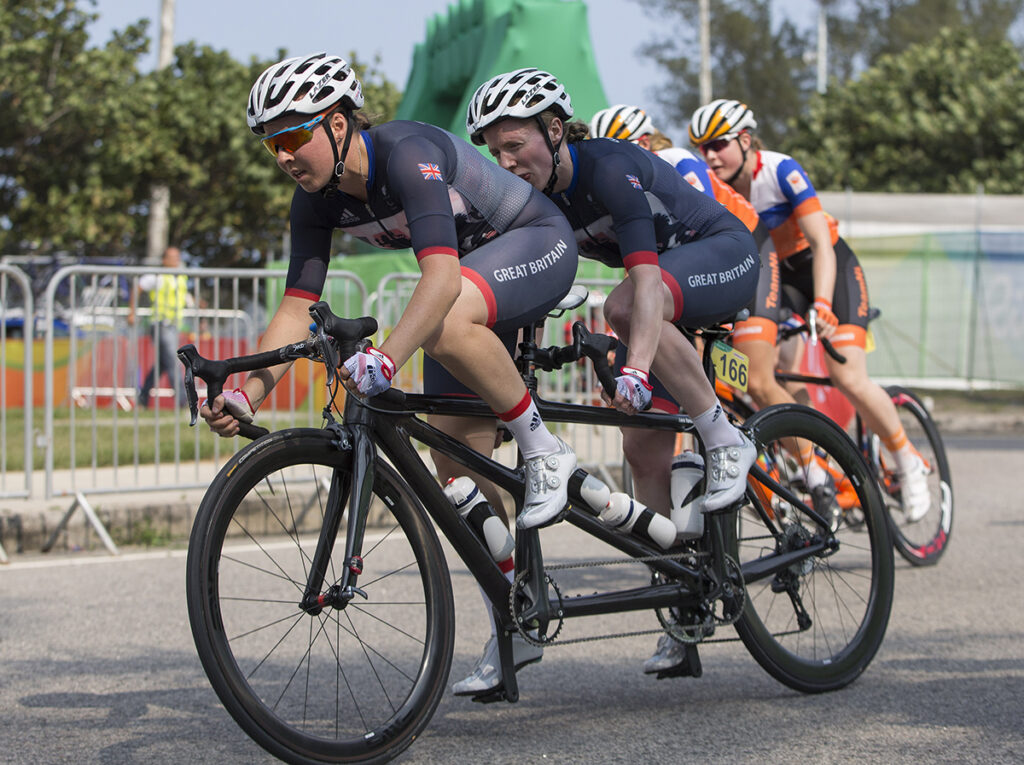
Lora Fachie
Fachie didn’t have a great debut Games at London 2012 despite being selected for both track and road events. Finishing seventh in the time trial was disappointing enough but Fachie then finished in eighth place in the road race due mainly to a mechanical fault with her bike while she had a 14-second lead on the final lap. On the track she finished just outside the medal places in both her events, losing the bronze medal race against British teammate Aileen McGlynn, in the individual pursuit and a fourth-place finish in the 1km time trial.
Fachie fared much better in Rio 2016 winning a gold medal in the individual pursuit B and bronze in road time trial B events.
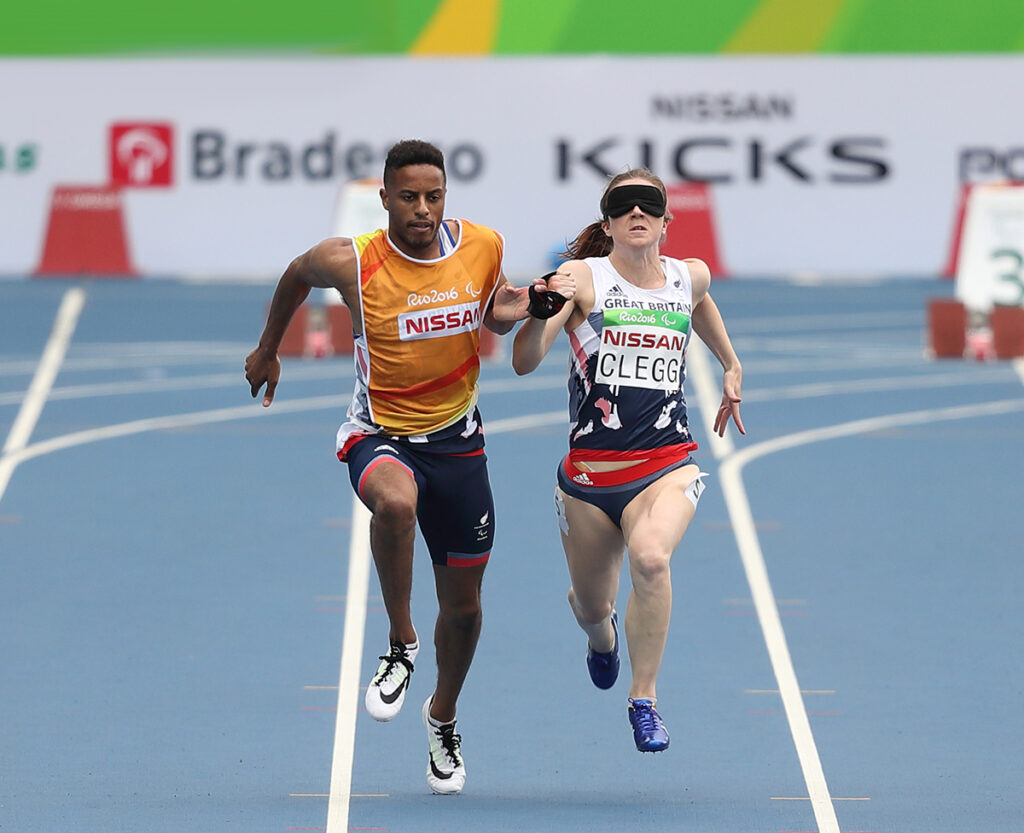
Libby Clegg
Tokyo will be Clegg’s fourth Paralympics, having won silver medals in Beijing 2008 and London 2012 in the T12 100m. She added a gold in the 100m from the Commonwealth Games in 2014, where she ran for Scotland.
Clegg has Stargardt macular dystrophy, a progressive eye condition and has only slight peripheral vision in her left eye. She is registered blind and competes with a guide runner.
Before the Paralympics in 2016, she was reclassified from T12 to T11 due to her deteriorating eyesight, requiring her to wear a blindfold while racing. Nevertheless, Clegg won two gold medals in the T11 100m and 200m at the Rio Games.
Paralympic Images: Copyright onEdition 2016©



